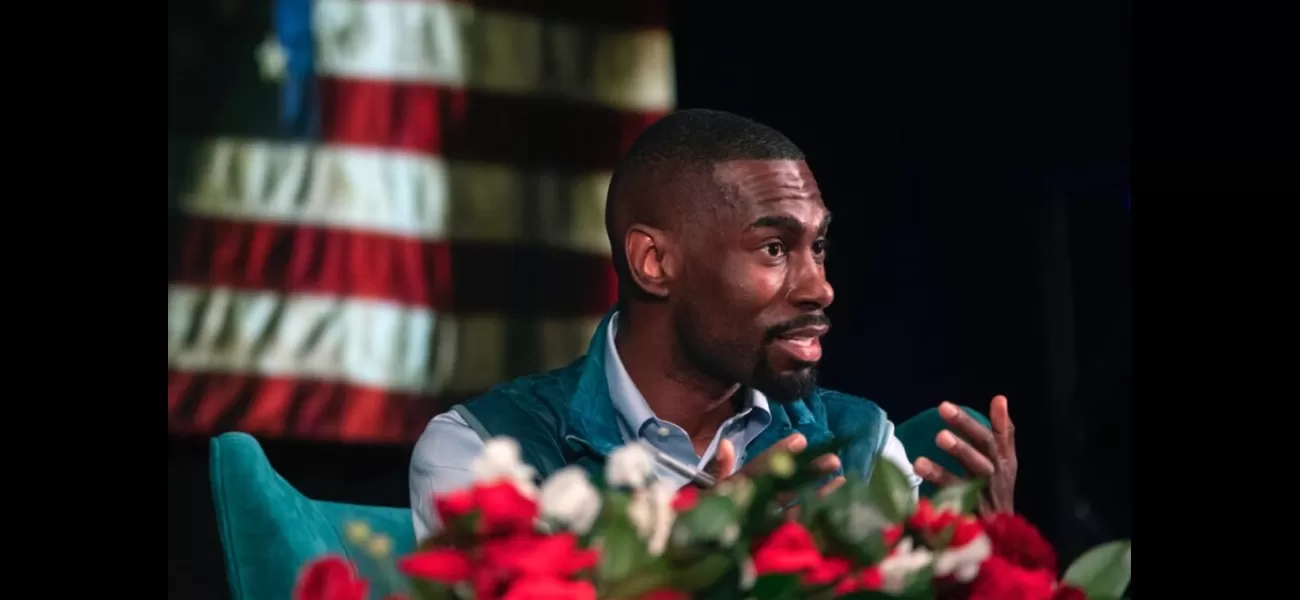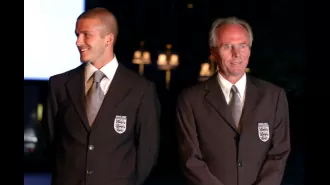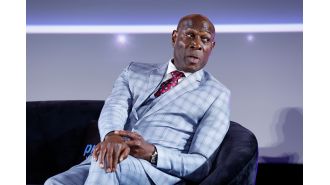The Supreme Court supports a police officer's lawsuit and denies a First Amendment appeal from a Black Lives Matter activist.
Mckesson's appeal over the 2016 protest following the police killing of Alton Sterling was rejected by justices on April 15.
April 19th 2024.

Recently, the U.S. Supreme Court made a decision to move forward with a lawsuit against Black Lives Matter activist DeRay Mckesson. This was in relation to a protest that took place in Louisiana back in 2016, where a police officer was injured.
Mckesson had filed an appeal on April 15, after a group of supporters took to the streets to protest the killing of Alton Sterling, a Black man, by a police officer in Baton Rouge. The incident had taken place on July 5, 2016, when Sterling was shot during a struggle outside a convenience store where he was selling homemade CDs.
The lawsuit, known as Mckesson v. Doe, was filed by Baton Rouge police officer John Ford, who claimed that he was hit by a "rock-like" object by an unidentified protestor. He held Mckesson responsible for negligence as the organizer of the protest. According to Reuters, Mckesson was arrested on the same day but the charges were later dropped.
Initially, the high court deemed the case to have "implications for First Amendment rights." However, they left the decision up to the lower courts. In a brief opinion, Justice Sonia Sotomayor stated that the court's denial did not express a view on the merits of Mckesson's claim.
In 2017, a federal judge dismissed the lawsuit, but the 5th U.S. Circuit Court of Appeals panel ruled 2-1 that the officer should be allowed to argue that Mckesson did not exercise reasonable care in leading the protesters onto a highway, resulting in a confrontation with the police. The court rejected the argument that the lawsuit was similar to a 1982 Supreme Court ruling involving Black civil rights activists in Mississippi, which limited the liability of protest leaders for the actions of others.
Judge Don Willett, in his ruling, mentioned Dr. Martin Luther King Jr.'s March on Selma in 1965, where peaceful protestors marched against the disenfranchisement of Black voters. He noted that political uprisings, from picketing to riots, have been a part of our history since the beginning. As a dissenting justice, Willett stood in favor of both the officer and Mckesson, stating that "he deserves justice."
Willett also expressed his disagreement with the lower court's decision, which could hold a protest organizer accountable for the actions of a single attendee. This ruling has raised concerns among civil rights groups and free speech advocates, who believe that it threatens the right to protest. The American Civil Liberties Union, representing Mckesson, argued in front of the court that allowing the lawsuit to proceed would discourage people from exercising their right to protest. They stated, "Given the prospect that some individual protest participants might engage in law-breaking, only the most intrepid citizens would exercise their rights if doing so risked personal liability for a third-party's wrongdoing."
This is not the first time Mckesson's case has made its way to the Supreme Court. In 2020, the justices ordered a review by lower courts to determine if Louisiana state law allowed for the officer's claim.
Mckesson had filed an appeal on April 15, after a group of supporters took to the streets to protest the killing of Alton Sterling, a Black man, by a police officer in Baton Rouge. The incident had taken place on July 5, 2016, when Sterling was shot during a struggle outside a convenience store where he was selling homemade CDs.
The lawsuit, known as Mckesson v. Doe, was filed by Baton Rouge police officer John Ford, who claimed that he was hit by a "rock-like" object by an unidentified protestor. He held Mckesson responsible for negligence as the organizer of the protest. According to Reuters, Mckesson was arrested on the same day but the charges were later dropped.
Initially, the high court deemed the case to have "implications for First Amendment rights." However, they left the decision up to the lower courts. In a brief opinion, Justice Sonia Sotomayor stated that the court's denial did not express a view on the merits of Mckesson's claim.
In 2017, a federal judge dismissed the lawsuit, but the 5th U.S. Circuit Court of Appeals panel ruled 2-1 that the officer should be allowed to argue that Mckesson did not exercise reasonable care in leading the protesters onto a highway, resulting in a confrontation with the police. The court rejected the argument that the lawsuit was similar to a 1982 Supreme Court ruling involving Black civil rights activists in Mississippi, which limited the liability of protest leaders for the actions of others.
Judge Don Willett, in his ruling, mentioned Dr. Martin Luther King Jr.'s March on Selma in 1965, where peaceful protestors marched against the disenfranchisement of Black voters. He noted that political uprisings, from picketing to riots, have been a part of our history since the beginning. As a dissenting justice, Willett stood in favor of both the officer and Mckesson, stating that "he deserves justice."
Willett also expressed his disagreement with the lower court's decision, which could hold a protest organizer accountable for the actions of a single attendee. This ruling has raised concerns among civil rights groups and free speech advocates, who believe that it threatens the right to protest. The American Civil Liberties Union, representing Mckesson, argued in front of the court that allowing the lawsuit to proceed would discourage people from exercising their right to protest. They stated, "Given the prospect that some individual protest participants might engage in law-breaking, only the most intrepid citizens would exercise their rights if doing so risked personal liability for a third-party's wrongdoing."
This is not the first time Mckesson's case has made its way to the Supreme Court. In 2020, the justices ordered a review by lower courts to determine if Louisiana state law allowed for the officer's claim.
[This article has been trending online recently and has been generated with AI. Your feed is customized.]
[Generative AI is experimental.]
0
0
Submit Comment





